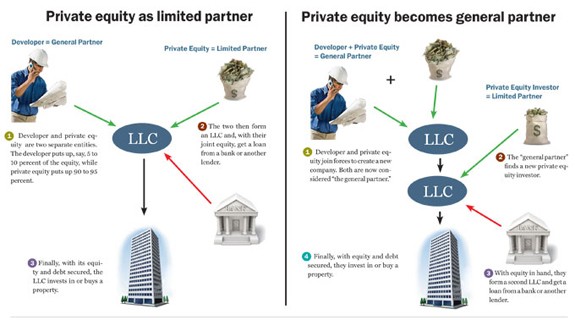Private Equity Firms
Post on: 16 Март, 2015 No Comment

And Private Equity Funds
Private Equity Firms Overview: Private equity firms (which manage private equity funds) are investment companies that, as a rule, do not hold publicly-traded securities. Instead, they normally seek equity stakes (that is, partial ownership) in private companies. They also may invest in so-called private placements of securities from public companies. That is, securities that are not offered to the general public or traded in the public securities markets (such as, but not limited to, the New York Stock Exchange or NASDAQ ) Venture capital is a specialized subcategory of private equity. Both are high risk, high reward investment approaches and alternatives.
Organization: Many private equity firms are standalone operations that draw their investment pools from wealthy individuals, pension funds and other investment managers. Most are private companies themselves, but some have been publicly traded entities. Other private equity funds are subsidiaries or divisions of larger firms in the financial services industry .
Characteristics: Private equity funds tend to have much longer investment horizons than funds that hold publicly-traded securities. There are several reasons for this. First, securities issued by private companies (as well as private placements of securities made by public companies) are highly illiquid, since they are not traded in public securities markets. Also, the opportunities for resale to another party are highly limited, with possible contractual and regulatory constraints adding to the difficulties. Second, some private equity funds tend to act as partners in managing the companies that they back, rather than being merely passive investors.
Private Equity Fees: Recently, a growing number of investors, both individual and institutional, as well as various industry observers, have been challenging the fees charged by private equity funds, especially since they often far exceed the actual costs of fund management. See this primer on private equity fees for more details on the issue and recent developments regarding it.
Career opportunities: Private equity funds rely upon in-house expertise in a variety of financial disciplines, such as securities research. money management and investment banking .
Additionally, since some private equity funds frequently take a major role in both operational and strategic decision-making at the companies in which they invest, experience in a variety of non-financial areas can be valuable, such as engineering. electronics, information technology. the Internet, manufacturing, chemicals, pharmaceuticals, as well as many others. The exact non-financial skills that might be in demand at a given private equity firm will depend on the industries or technologies that it focuses upon, and on how hands-on it prefers to be in working with the management of the companies that it supports financially.
In any case, multidisciplinary experience is valued especially highly, such as with someone who combines an engineering or other technical background with one in financial analysis. Private equity funds, whether standalone or part of a larger financial firm, tend to have lean staffing. This creates opportunities for large individual financial rewards, but at the cost of a frenetic pace, generally with long hours and frequent business travel .














